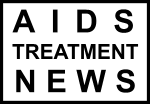"The documents include internal correspondence, reports, and tracking documents relating to interactions between the pharmaceutical company Wyeth and a medical communications firm, to promote Wyeth's hormone drugs. These documents show in considerable detail a coordinated and carefully monitored campaign of "ghostwriting" by Wyeth and medical writing companies for a number of products marketed by the company.
"Ghostwriting, which involves using medical writers to produce articles that are then nominally authored by an academic not substantially involved in the writing process, has been condemned as an unacceptable practice by medical journals and editors. Nonetheless, the practice appears to persist and by placing all the documents for scrutiny in the public domain, the editors of PLoS Medicine hope that they will help guide the way to identifying reforms that will eventually stamp ghostwriting out. ...
"In an editorial that has been posted on the PLoS Medicine blog, Speaking of Medicine (http://speakingofmedicine.plos.org/2009/08/21/ghostwriting-documents-now-fully-available-on-plos-medicine-website/), the PLoS Medicine editors declare that this is "one of the most compelling expositions ever seen of the systematic manipulation and abuse of scholarly publishing by the pharmaceutical industry and its commercial partners in their attempt to influence the health care decisions of physicians and the general public." The editors go on to call for action to eradicate ghost-writing, including retraction of papers where ghostwriting or inappropriate involvement of medical writers is found, banning of authors found to have put their names to such papers from any subsequent publication in the journal, and rigorous investigation of such misconduct by the researchers' academic institutions."
Read more in EurekAlert!, August 21, 2009.

0 comments:
Post a Comment